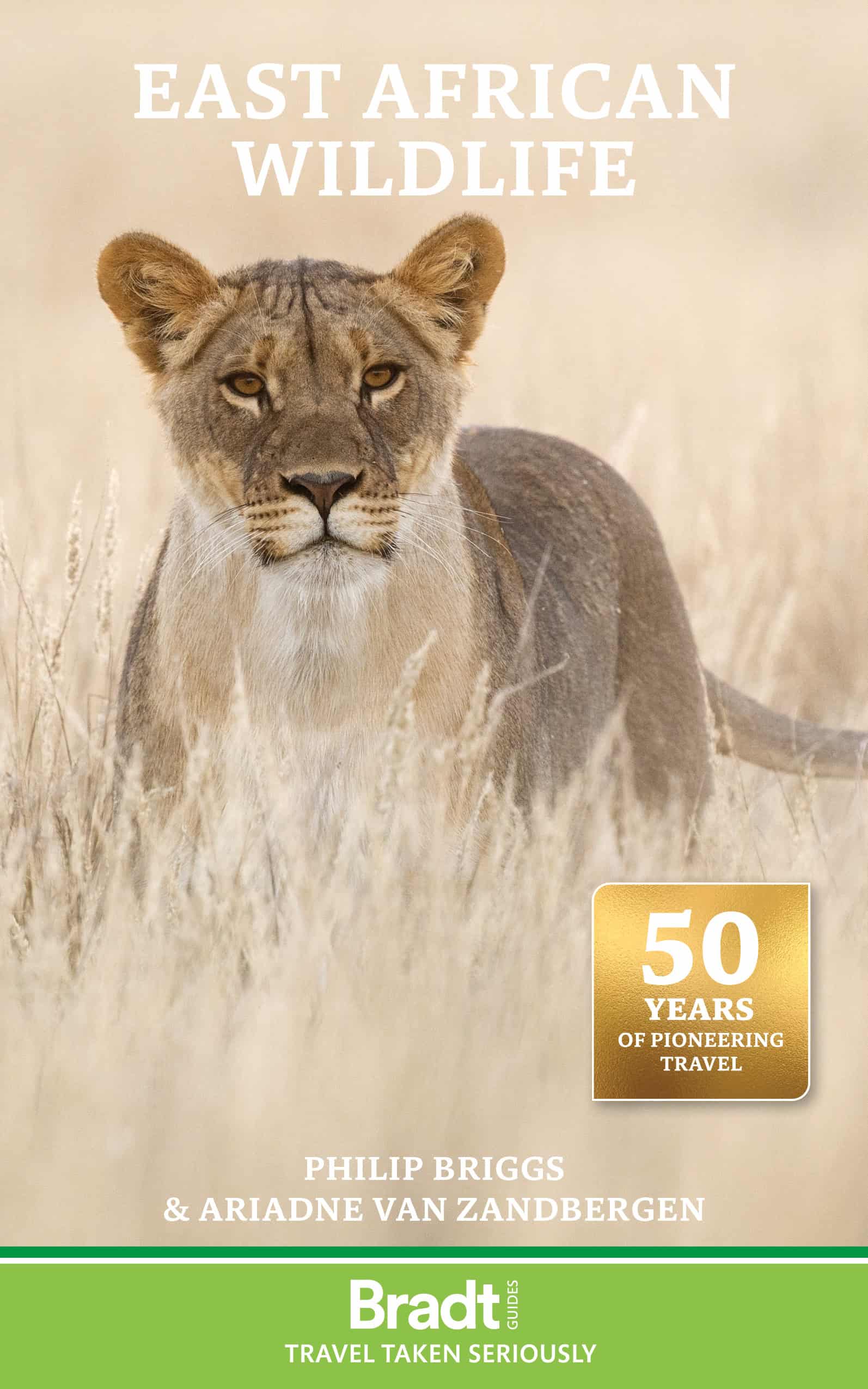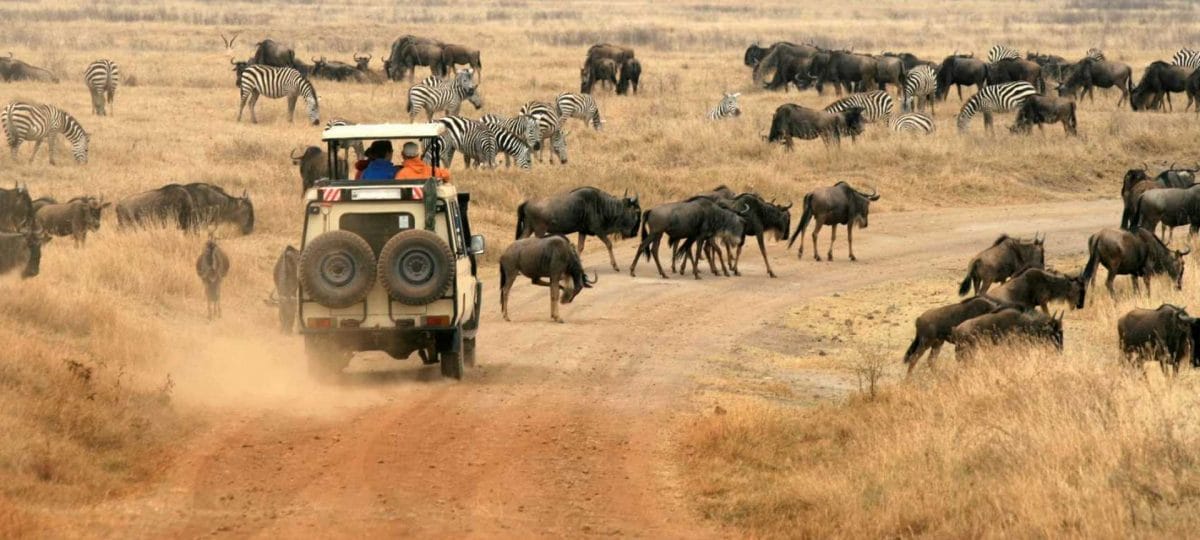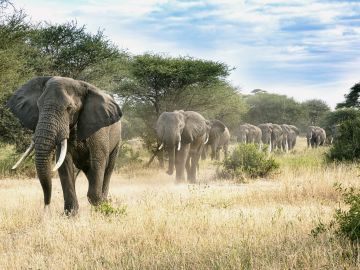European Travellers' Handbook to Exploring the Wildlife of Tanzania

Introduction
Overview of Tanzania
Tanzania, located in East Africa, is an enchanting country known for its stunning landscapes and rich cultural heritage. It boasts diverse ecosystems ranging from the majestic Mount Kilimanjaro to the tropical beaches of Zanzibar.
With a rich fusion of cultures, languages, and history, Tanzania offers travellers a unique experience that's hard to match. Whether you're exploring bustling markets in Dar es Salaam or hiking through rural villages, the vibrant life of Tanzania is always on display. Here are some key highlights about Tanzania:
- Geography: It features vast savannahs, lush forests, and serene coastlines.
- Climate: Expect warm weather year-round, with rainy seasons varying by region.
- People: A mix of over 120 ethnic groups, each with their unique traditions and customs.
Importance of Wildlife in Tanzania
Wildlife plays a crucial role in Tanzania's identity and economy. The country is home to some of the most famous national parks, drawing nature enthusiasts and wildlife lovers from around the globe. The Serengeti National Park is celebrated for its annual wildebeest migration, and the Ngorongoro Crater, a UNESCO World Heritage Site, showcases nature's breathtaking spectacles. Consider these reasons why wildlife is vital in Tanzania:
- Ecotourism: Wildlife tourism significantly contributes to the economy.
- Biodiversity: The variety of species helps maintain ecological balance.
- Cultural Significance: Many communities rely on wildlife for their cultural rituals and sustenance.
With its incredible wildlife and commitment to conservation, Tanzania is not just a destination; it's a phenomenal adventure waiting to be explored.
Planning Your Trip
Best Time to Visit
When planning your incredible journey to Tanzania, timing can make all the difference in your experience. The best time to visit largely depends on what you're hoping to see. Generally, the dry season from June to October is ideal for wildlife viewing, as animals congregate around water sources. Many travellers flock to the Serengeti during this time to witness the breathtaking Great Migration. Here’s a quick breakdown of the seasons to consider:
- Dry Season (June to October):
- Ideal for wildlife safaris.
- Clear skies and less rain.
- Wet Season (November to May):
- Lush landscapes and fewer tourists.
- Perfect for birdwatching, as migratory birds flock to the area.
Pro tip: If you’re keen on seeing the wildebeest migration, plan your visit around April to June for the best chance.
Entry Requirements and Permits
Before heading out on this unforgettable adventure, you’ll need to check the entry requirements. Most travellers must obtain a visa before arriving, which can often be done online. Be sure to have the following handy:
- Passport: Valid for at least six months beyond your stay.
- Visa: Required for most nationalities.
- Yellow Fever Vaccination Certificate: Especially if coming from an endemic area.
Additionally, for those looking to explore Tanzania’s fantastic national parks, you'll need to purchase entry permits. You can often buy these at park gates, but for a seamless experience, consider obtaining them ahead of time through official tourism websites. By being mindful of the best time to visit and ensuring you have the right entry documents, you'll set yourself up for an unforgettable adventure in Tanzania!

Top National Parks to Explore
Serengeti National Park
As you embark on your Tanzanian adventure, no trip will be complete without visiting the iconic Serengeti National Park. This vast expanse of savannah is famous for its unparalleled wildlife and the dramatic spectacle of the Great Migration, where over a million wildebeests, zebras, and other animals journey across the land in search of greener pastures. What makes the Serengeti truly special?
- Wildlife Diversity: Spot the Big Five—lions, elephants, buffalo, leopards, and rhinoceros—alongside hundreds of other species.
- Scenic Landscapes: From rolling plains to rugged hills, the diverse terrain provides stunning backdrops for your safari photos.
- Safari Options: Choose from game drives, hot air balloon rides, or guided walking safaris for unique perspectives.
Imagine waking up early to the sounds of nature and stepping outside your lodge to witness a breathtaking sunrise over the African plain—it's truly unforgettable!
Ngorongoro Crater Conservation Area
Next on your must-visit list is the Ngorongoro Crater Conservation Area, often described as a natural wonder. Formed from a collapsed volcano, this UNESCO World Heritage Site offers a unique ecosystem hosting an array of wildlife in a compact area. Key highlights include:
- Biodiversity Hotspot: Home to over 25,000 large animals, including black rhinos and massive herds of wildebeests.
- Cultural Significance: The area is also a haven for the Maasai people, allowing for enriching cultural exchanges.
- Stunning Views: The panoramic views from the crater rim are simply spectacular, offering a glimpse into a microcosm of nature.
Visiting Ngorongoro is like stepping into a picturesque wildlife documentary—teeming with life and breathtaking scenery around every corner. With these two remarkable parks on your itinerary, your journey through Tanzania promises to be both exhilarating and transformative!

Wildlife Safari Tips
Hiring a Professional Guide
To enhance your wildlife safari experience, hiring a professional guide is a game-changer. While exploring Tanzania’s breathtaking parks, a knowledgeable guide can uncover the hidden wonders of the wilderness and provide insights about the flora and fauna that you might miss on your own. Here’s why you should consider hiring a guide:
- Expert Knowledge: Guides are trained in animal behaviour and can often predict animal movements, increasing your chances of seeing elusive wildlife.
- Safety: Navigating the parks can be tricky, and having an experienced guide ensures you stay safe and follow regulations.
- Cultural Insights: Many guides are locals and can share rich stories about their culture, adding depth to your experience.
Imagine spotting a pride of lions lounging under a tree while your guide shares fascinating tales about their social structure. It’s a whole new level of adventure!
Packing Essentials for Safari
When preparing for your safari, proper packing is key to enjoying the experience. Here’s a checklist of essentials to help you on your way:
- Clothing:
- Lightweight, breathable fabrics (avoiding bright colours)
- A wide-brimmed hat for sun protection
- Comfortable walking shoes
- Binoculars and Camera: Perfect for capturing amazing wildlife moments or just getting a closer look.
- Insect Repellent and Sunscreen: Keeping yourself safe from bites and sunburn is crucial, especially during long days in the field.
- Reusable Water Bottle: Stay hydrated while being eco-friendly!
Remember, pack light but prioritize comfort and convenience. With the right guide and a well-planned packing list, you'll be all set for an incredible safari adventure that leaves lasting impressions!

Discovering Unique Wildlife Species
Big Five Animals of Tanzania
As you venture into the heart of Tanzania’s national parks, one of the most exhilarating experiences is the opportunity to encounter the renowned Big Five. This term refers to five majestic animals that once represented the ultimate hunting trophy but now symbolize wildlife conservation and the breathtaking experiences available to safari-goers. The Big Five includes:
- Lion: Often seen lounging in the shade, these kings of the jungle are a must-see.
- African Elephant: The largest land mammal on earth, their gentle nature and familial bonds make them fascinating to observe.
- Cape Buffalo: Known for their unpredictable nature, spotting these massive creatures can be quite thrilling.
- Leopard: Elusive and agile, these solitary hunters are often found resting in trees, showcasing their stunning spotted coats.
- Rhinoceros: The threatened black rhinoceros play a vital role in its ecosystem.
The thrill of spotting these animals in their natural habitat creates a lasting memory that many travellers cherish.
Rare and Endangered Species
In addition to the Big Five, Tanzania is home to numerous rare and endangered species that are worth discovering. The importance of wildlife conservation is evident in efforts to protect these unique animals. Some notable rare species include:
- African Wild Dog: Known for their intricate social structure and cooperative hunting techniques, these packs are critically endangered.
- Eastern Black Rhino: With fewer than 5,000 individuals remaining, sightings of this magnificent creature are rare but profoundly impactful.
- Sitatunga: An unusual antelope adapted to swampy habitats, offering a distinctive sight for keen observers.
Encountering these endangered species not only enhances your safari experience but also emphasizes the ongoing need for conservation efforts. Your trip to Tanzania becomes not just an adventure, but a way to contribute to the preservation of these astounding creatures for future generations.

Conservation Efforts in Tanzania
Anti-Poaching Initiatives
Tanzania is at the forefront of wildlife conservation, and one of the most pressing challenges it faces is poaching. In recent years, the country has ramped up its efforts to combat this illegal activity through various anti-poaching initiatives. These programs not only protect endangered species but also safeguard the country’s rich biodiversity. Key initiatives include:
- Increased Patrols: National parks like Serengeti and Ngorongoro are now patrolled by specially trained rangers who work tirelessly to deter poachers.
- Community Engagement: Local communities are involved in conservation efforts by promoting the benefits of wildlife tourism. When communities benefit economically from protecting wildlife, they are more likely to stand against poaching.
- Technology Utilization: Drones and surveillance technologies are increasingly being employed to monitor wildlife and detect illegal activities in real time.
The positive impact of these initiatives is evident when you spot healthy populations of elephants and rhinos thriving in their natural habitats.
Wildlife Rehabilitation Centers
In addition to anti-poaching measures, Tanzania is home to several wildlife rehabilitation centres that provide essential care for injured or orphaned animals. These centres play a crucial role in animal conservation and rehabilitation, helping to reintegrate healthy individuals back into their natural environments. Some of the prominent wildlife rehabilitation centres include:
- Daktari Bush School and Wildlife Orphanage: Focuses on educating the local community while caring for orphaned animals.
- African Wildlife Foundation: Involved in rescuing wildlife in distress, particularly elephants and pangolins, which face significant threats.
These centres not only provide critical care but also raise awareness about conservation issues. By supporting these efforts, visitors can contribute to the protection and rehabilitation of Tanzania's incredible wildlife, ensuring a brighter future for generations to come. Combining your safari experience with a commitment to conservation allows you to make a meaningful impact on the beautiful landscapes and creatures that call Tanzania home.

Cultural Etiquette and Interactions
Respecting Local Customs
As you immerse yourself in the breathtaking landscapes of Tanzania, it’s essential to embrace the rich cultural tapestry that defines the nation. Respecting local customs not only enhances your experience but also fosters positive interactions with the communities you encounter. Here are a few customs to keep in mind:
- Greetings Matter: A warm greeting goes a long way. Traditional phrases like "Jambo" (Hello) and "Asante" (Thank you) can make locals feel appreciated.
- Dress Modestly: When visiting rural areas or cultural sites, wear clothing that covers your shoulders and knees as a sign of respect.
- Avoid Public Displays of Affection: While this might be common in many parts of the world, it's best to refrain from such displays in public settings.
Respecting these customs can foster goodwill and open doors to meaningful interactions.
Engaging with Indigenous Communities
One of the most rewarding aspects of your Tanzanian journey is the opportunity to engage with indigenous communities. The Maasai and other ethnic groups have rich traditions and lifestyles that can be fascinating to learn about. When interacting with these communities, consider the following tips:
- Ask Before Taking Photos: Always ask for permission before photographing people or their homes. This shows respect and appreciation for their personal space.
- Participate Respectfully: Many communities offer cultural experiences like traditional dances or crafts. Embrace these activities with an open heart and a genuine interest.
- Support Local Artisans: Purchasing handmade crafts or goods directly from local artisans helps support their livelihoods.
Building genuine connections through respectful engagement brings depth to your travel experience and showcases the importance of cultural preservation. By embracing the local customs and taking the time to interact meaningfully, you contribute to the protection of Tanzania's vibrant heritage. This fusion of wildlife adventure and cultural immersion ensures an unforgettable journey filled with memories that linger long after you've returned home.
Food and Accommodation Options
Traditional Tanzanian Cuisine
Exploring Tanzania is not just about stunning landscapes and magnificent wildlife; it’s also an invitation to indulge in its flavorful cuisine. Traditional Tanzanian food is a melting pot of influences, reflecting its diverse cultures and abundant agricultural produce. Some must-try dishes include:
- Ugali: A staple made from maize flour, often served as a side with meats and vegetables.
- Zanzibar Pizza: A unique street food, this crispy delight is filled with a mix of meats, vegetables, and sometimes egg, wrapped in a thin dough.
- Nyama Choma: Grilled meat, often enjoyed with a spicy salsa known as "kachumbari," is a favorite for many locals and visitors alike.
Eating at local markets can be a great way to experience authentic flavors and interact with the friendly food vendors. Just remember, sharing meals with locals can create lasting connections and unforgettable memories!
Eco-Friendly Lodges and Camps
When it comes to accommodation, Tanzania offers a range of eco-friendly lodges and camps that allow you to soak in the beauty of the environment while ensuring minimal impact. Staying at these eco-conscious establishments enhances your safari experience and shows respect for the land you explore. Consider these options:
- Serengeti Migration Camp: This camp blends luxury and sustainability, offering unique tented accommodations with a focus on conservation.
- Ngorongoro Crater Lodge: Perched on the rim of the crater, it provides breathtaking views while using green technologies to power its operations.
Choosing eco-friendly lodges means you’re contributing to local conservation efforts while enjoying comfort and style. These stays often provide opportunities to learn about sustainable practices and engage with conservation initiatives, making your journey in Tanzania not just enjoyable, but impactful. Balancing delicious foods and eco-responsible stays creates a holistic and enriching adventure as you discover the heart and soul of this incredible country!
Health and Safety Precautions
Vaccination Requirements
When planning your adventurous trip to Tanzania, it's essential to prioritize your health by addressing vaccination requirements. While there are no mandatory vaccinations, certain immunizations are highly recommended to ensure your well-being and peace of mind during your travels. Key vaccinations to consider include:
- Yellow Fever: Required if traveling from an endemic country, this vaccination is crucial for preventing a serious mosquito-borne disease.
- Hepatitis A and B: These vaccines protect against food and waterborne illnesses commonly found in many regions.
- Typhoid: Particularly advised if you plan to visit rural areas or partake in local cuisine.
It’s a good idea to consult with a healthcare professional well in advance of your trip to discuss your options and ensure you’re fully vaccinated.
Wildlife Safety Guidelines
As you embark on your wildlife safari, adherence to safety guidelines is vital for both your safety and the well-being of the animals. Understanding how to respectfully interact with wildlife will enhance your experience. Here are some important guidelines to follow:
- Keep a Safe Distance: Always maintain a safe distance from animals. This reduces stress on wildlife and protects you from potential danger.
- No Feeding Animals: Feeding wildlife can interfere with their natural behaviors and could lead to dangerous encounters.
- Stay Inside the Vehicle: When on game drives, always remain inside your vehicle unless directed otherwise by your guide.
Additionally, your guide will provide specific instructions for each encounter, ensuring a memorable yet safe experience. By being mindful of vaccination requirements and adhering to wildlife safety guidelines, you set the foundation for a healthy and thrilling adventure in Tanzania. Preparing thoroughly allows you to fully immerse yourself in the stunning beauty of the landscapes and rich biodiversity without concern, making your journey all the more unforgettable!
Sustainable Travel Practices
Minimizing Environmental Impact
Sustainable travel is about making mindful choices that protect the beautiful environments you explore, and Tanzania presents a wonderful opportunity to adopt such practices. As you journey through this eco-rich nation, there are several ways to minimize your environmental footprint. Here are some practical tips for sustainable travel:
- Choose Eco-Friendly Transport: Opt for local buses or shared shuttles whenever possible instead of private vehicles. Embrace walking or biking in smaller towns to reduce emissions.
- Limit Plastic Use: Carry a reusable water bottle and avoid single-use plastics. Many lodges will provide refill stations, allowing you to stay hydrated while minimizing waste.
- Respect Natural Habitats: Stay on designated paths when hiking or exploring natural areas, as this protects sensitive ecosystems and minimizes impact on wildlife.
Each small effort adds up to make a significant difference, ensuring that Tanzania remains a pristine paradise for future generations to enjoy.
Supporting Local Conservation Projects
In addition to minimizing your impact, actively supporting local conservation projects can make your travel experience even more rewarding. By contributing to these initiatives, you play a vital role in preserving Tanzania’s stunning wildlife and landscapes. Consider these supportive actions:
- Participate in Community-Based Tourism: Engage in tours that fund local conservation efforts while providing sustainable income to residents. Experiences like village visits or guided nature walks led by local projects can be enriching both for you and the community.
- Donate to Conservation Organizations: Whether it's a small contribution or choosing lodges that donate part of their profits to wildlife conservation, every bit helps protect endangered species and habitats.
Being an eco-conscious traveler not only enhances your own experiences but also fosters a deeper connection to the land and its people. By adopting sustainable practices and supporting local efforts, you leave a positive mark wherever you wander while ensuring the preservation of Tanzania’s natural beauty.
